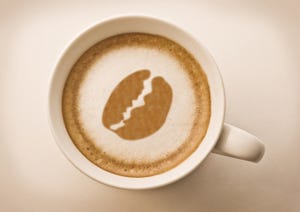What does plastic taste like?
An interesting conversation popped up on the Tech Talk - Society of Plastics Engineers social media site. It seems that Dr. Thomas Haas, owner of Polymetrics LLC, a testing, consulting and forensic services provider to the plastics industry, has discovered a problem with many commercial coffeemakers that use plastic parts.People have been complaining of things like, "the coffee/water smells/tastes sort of like plastic . . . not a pleasant thing.""There was a HORRIBLE plastic smell and taste to the coffee."
May 7, 2015
An interesting conversation popped up on the Tech Talk - Society of Plastics Engineers social media site. It seems that Dr. Thomas Haas, owner of Polymetrics LLC, a testing, consulting and forensic services provider to the plastics industry, has discovered a problem with many commercial coffeemakers that use plastic parts.
People have been complaining of things like, "the coffee/water smells/tastes sort of like plastic . . . not a pleasant thing."
"There was a HORRIBLE plastic smell and taste to the coffee."
"Plastic coffeemakers like these could be hazardous to your health . . . many drinkers have noticed an odd plastic taste in their coffee."
|
Image courtesy TokyoBoy/freedigitalphotos.net. |
Hmmm. I've never actually tasted plastic before, even when I worked at an injection molding company. Tasting our plastic parts was never part of the quality control process, so I'm not sure I could identify the taste of plastic.
"I'm sick of my coffee tasting like polyeurothane (sic) . . . through (sic) it takes the new plastic taste out, probably the acidity, but any suggestions?"
Actually, I believe that "polyeurothane" is a type of plastic used only in Europe. I'm not sure that we use "polyeurothane" in the United States. Check with the Euro zone and see if they have identified this plastic in coffeemakers made there.
"Each time I take a sip of my coffee it taste (sic) like chemicals, like the plastic has melted its way into what I'm now drinking."
Just how hot does your coffeemaker make your coffee? Since most plastics melt at temperatures far beyond the temperature of a hot cup of coffee, I'm not sure that your coffee could melt the plastic. And if your coffee is hot enough to melt plastic, you'd better hope that you never spill it in your lap!
Dr. Haas was actually offered some potential culprits for the supposed problem: "It is the organoleptic properties of the construction of the [resin/colorants/additives] being used . . . and the overall methods of molding and assembly."
However, leave it to my old friend, Allan Griff, to come up with the best answer: "Most of the complaints are Bolonium." (I love these new scientific words that he comes up with!)
If the type of plastic that is used in the coffeemaker were leaching out a strange "chemical" or "plastic" taste, Griff suggested that the manufacturer of the coffeemakers "should have tested and known this, so it's a misapplication of that grade and polymer."
I might suggest that these people check out the country of origin of the coffeemaker to ensure that the materials used meet U.S. regulatory standards. I'd say stick to Made in USA as the best bet for these types of products.
I'd also suggest that, if your coffee tastes like plastic, you are not drinking strong enough coffee. Throw in an extra spoonful of coffee.
While all of this is being debated on www.thechain.4spe.org (registration required), I think I'll go take a bite out of my Mr. Coffee machine and see if I can identify the taste. I'll let you know what I detect.
About the Author(s)
You May Also Like





